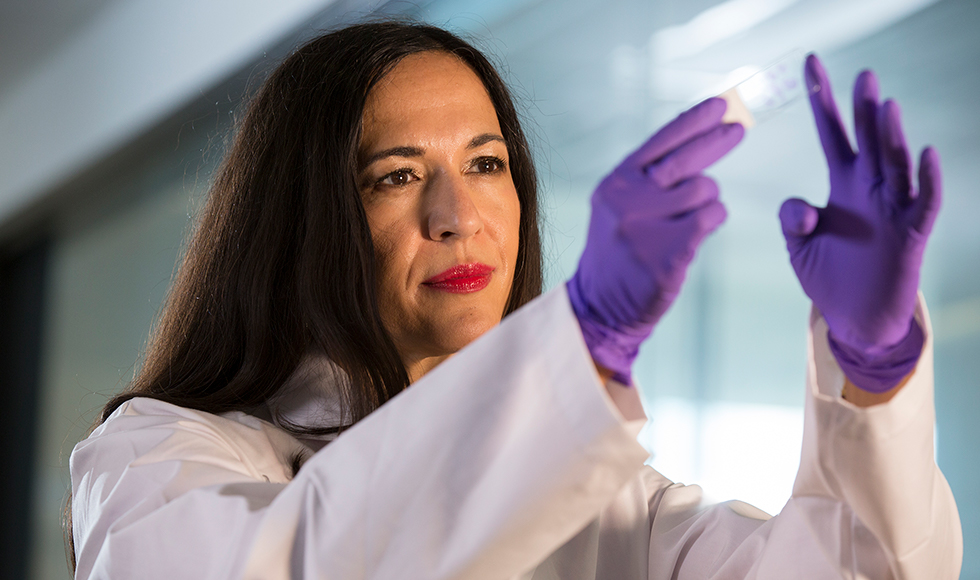Cutting-edge glioblastoma research gets charity cash injection

The $100,000 grant from Brain Cancer Canada will allow McMaster scientist Sheila Singh to devise new treatments for recurrent glioblastomas.
May 31, 2021
Potentially groundbreaking research at McMaster University that could save the lives of those with a lethal brain cancer is receiving a much-needed cash injection.
The $100,000 grant from Brain Cancer Canada will allow McMaster scientist Sheila Singh to devise new treatments for recurrent glioblastomas (GBMs).
Singh and her team are focusing their research on stem-like cells driving GBMs to reoccur, using CRISPR technology to map a series of genes in cancer cells as potential points of attack. Once identified, specific antibodies or immunotherapy can be used to disable them the function of those genes, and potentially offer a new method to treat recurring GBMs.
“Early-stage research is harder to get funded but is so essential to make a difference. The funding we are receiving today allows us to explore and solidify hopeful indications that there might be a viable therapy in our approach,” said Singh, a researcher and professor of surgery at McMaster’s Michael G. DeGroote School of Medicine and a pediatric neurosurgeon for McMaster Children’s Hospital.
“Brain Cancer Canada is stepping up to fund research that is in an uncertain but promising stage.”
However, Singh and her team are up against a tough opponent. A recurring GBM is typically different from the originally cancer, spreads aggressively, does not respond to treatment and is almost always fatal.
On average, GBM tumours regrow seven to nine months after diagnosis and most patients do not survive beyond fifteen months post-diagnosis. The five-year survival rate for GBMs is only 5.5 to 6.8 per cent.
Current GBM treatments include surgery, radiation and chemotherapy, which can seriously impair patients’ quality of life.
“Dr. Singh and her team at the Sheila Singh Lab are taking an innovative, multidisciplinary approach to unlock new possibilities that are so needed. By supporting their work, we believe we can work step-by-step towards the next critical discovery that could help end this fight in favour of patients,” said Marc Peeters, director of partnerships and stakeholders at Brain Cancer Canada.
“This is just a first step in our journey with Sheila Singh Labs and McMaster University, and we look forward to supporting more projects in the future.”


